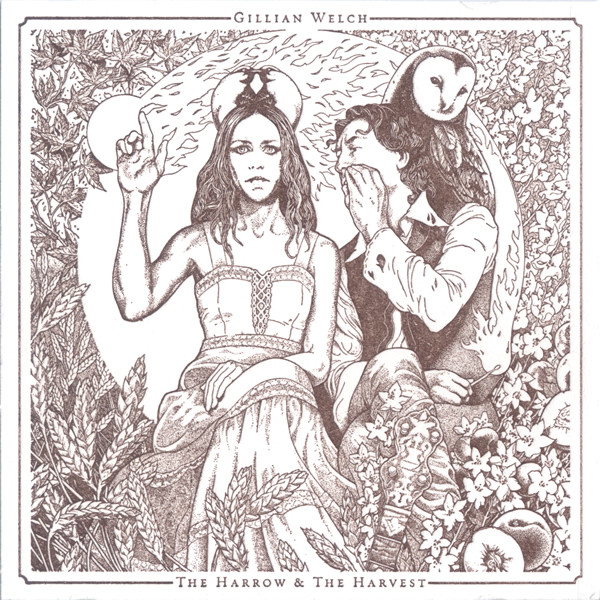Gillian Welch is the fake cover persona of a 300-year-old ghost who makes music. Okay, that’s probably an exaggeration, but Welch’s music truly feels like it has existed for centuries. She writes Appalachian folk music, with every song amounting to one woman and a guitar, but what she does with these sparse tools is truly enchanting.
Welch, in her one words, is “possessed with a dark turn of mind.” Her music reflects the cultural and economic devastation of Appalachia in the present moment but does so without ever resorting to topical songs or sociopolitical statements. She rarely references modern items, technology, allowing her music to exist in a temporal dead zone.
The album in question today, “Harrow and the Harvest,” is without question Welch’s best album. The guitar work is courtesy of long-time collaborator David Rawlings, a man described as a “guitar god,” in multiple different reviews. However, it is the songwriting, extraordinary even by Welch’s standards, that make this album stand out above her back catalogue. The songs are desolate, wistful, and preoccupied with death. This is a common feature of Appalachian music, but Welch blends it with a narrative skill not usually found in traditional music. Songs like “The Way it Goes,” tells the story of an ill-fated group of friends as they meet various unfortunate fates. Other songs chip away at the temporal barrier by telling stories from Welch’s early performing days.
However, the centerpiece of the album is without a doubt “Tennessee,” a song about lust and temptation that depicts the internal struggle between remaining in a happy community and following your own desires. The album strikes the hard balance between emotional detail and minimalism. The chorus has no narrative function, consisting of little more than a few mumbled vocalizations and a single stanza “It’s beefsteak when I’m working/ Whiskey when I’m dry/ Sweet heaven when I die.” However, through Welch’s subtle performance, she fills the song with innuendo, making it unclear whether the song is entirely metaphorical, about a mysterious and forbidden man or simply about a woman.
I’m not quite sure what the target audience is for an album like this, but I encourage anyone and everyone to listen to it. Welch is a criminally underrated artist. Too rootsy and traditional for Pitchfork but to raw and unfiltered for the Grand Ole Opry. Gillian Welch is keeping the culture alive.

